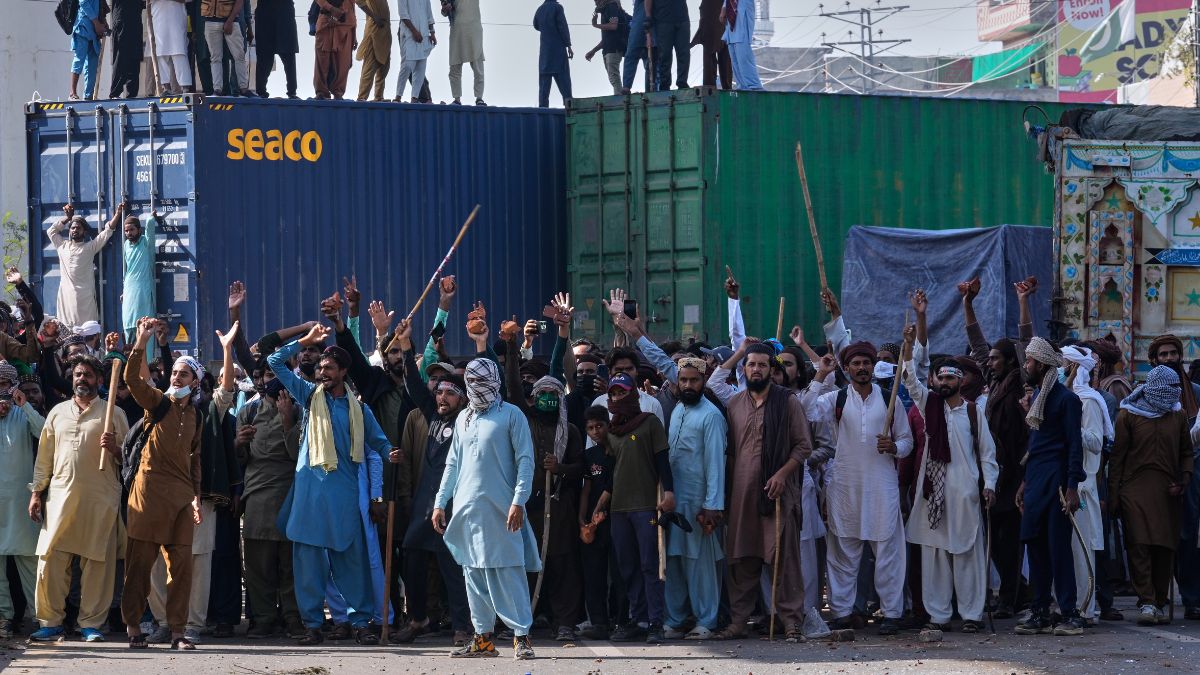Pakistan on high alert: No internet, Section 144 imposed, entry roads sealed in Islamabad, Rawalpindi; here is why

Pakistan's Shehbaz Sharif-led government has cut off mobile and internet connectivity in Islamabad and Rawalpindi ahead of the planned 'Labbaik Ya Aqsa Million March' by the Tehreek-e-Labbaik Pakistan (TLP), a radical Islamist party.
According to a letter sent to the country's Public Relations Department and approved by Home Minister Mohsin Naqvi, internet services in both cities have been suspended indefinitely.
Routes into the capital city have also been blocked.
A Section 144 order, which bans more than four people from gathering in public places, has also been imposed for 10 days on the capital city by Pakistan's Punjab police. However, the order will not apply to prayers, weddings, funerals, offices, or court premises. Section 144 is already in effect in Rawalpindi till October 11.
This comes after its violent clashes in Lahore with TLP party members over an anti-Israel protest that had left many injured on Thursday.
In that regard, ahead of a TLP announcement about an anti-Israel protest outside Islamabad's US embassy on Friday, the Punjab police arrested TLP chief Saad Hussain Rizvi.
“The Jews are oppressing Muslims in Gaza, and here their supporters are oppressing Muslims here,” a TLP spokesperson has said, adding that the party strongly condemned the arrests and raids on its workers across Pakistan's Punjab province.
The Islamabad traffic police also issued a diversion plan, referring to the “law and order” situation in the Faizabad area, while the US Embassy in Islamabad advised US citizens in an X post to "avoid large gatherings and remain aware of their surroundings".
"At least five police constables and over a dozen TLP workers were injured in clashes that continued for several hours," a PTI report said on Thursday, citing a police officer. The TLP, however, claimed that at least one of its workers was killed and 20 were injured in clashes with police.
World